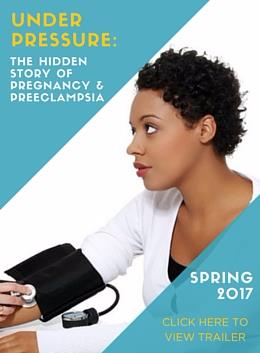Double board-certified physician in OB/GYN and Maternal-Fetal Medicine Dr. Kecia Gaither Offers Tips on Cancer Screening
New York, NY (PRWEB) September 14, 2017
Before the Pap test was adopted as a standard screening test in the 1950s, cervical cancer was among the leading causes of cancer death in women. The test is generally credited with saving the lives of millions of women and, according to the American Cancer Society, is responsible for a 50% decrease in the death rate from cervical cancer over the last forty years. And so a Pap test has been an annual fact of life for women for decades. But in 2012, the American College of Obstetricians and Gynecologists and the U. S. Preventive Services Task Force issued new guidelines based on studies that showed no advantage to having an annual Pap test over having one every three years.
“The goal of the new guidelines is to test often enough to catch early warning signs of cancer but not so often that women are subjected to unnecessary follow-up based on false positive results,” says obstetrician-gynecologist Dr. Kecia Gaither. “But while it’s true that most healthy women do not need an annual Pap test, there are exceptions based on a woman’s history and sexual activity. And all should have a well-woman doctor visit every year that covers reproductive and sexual health.”
What is a Pap test?
The Pap test was named for Georgios Papanikolaou, the Greek doctor whose research in the 1920s led to the development of the test. The test, also known as a Pap smear, collects cells from the cervix, which is the lower end of the uterus where it opens into the vagina. Microscopic examination checks for cancerous cells and cells that show abnormal changes that might become cancer, a pre-cancer condition called cervical dysplasia. Cervical cancer can usually be successfully treated when caught early and can almost always be prevented when pre-cancrous changes are detected in a Pap test.
Most cases of cervical cancer are caused by a common sexually transmitted infection called human papillomavirus (HPV) which is often responsible for abnormal changes in cervical cells. Sexually active women may also be tested for the presence of an active HPV infection.
When Do I Need a Pap Test?
“Every woman should discuss with her doctor when and how often she should be tested,” says Dr. Gaither. “In general, most women between the ages of 21 and 65 should have regular Pap tests but most do not need to have one every year.” Dr. Gaither offers these guidelines:
Screening should start at age 21. Cervical cancer is very rare in younger women even if they are sexually active and changes associated with HPV will typically resolve without treatment.
Women between ages 21 and 29 with no history of abnormal Pap smears should be tested every three years. Cervical cancer develops very slowly, over 10-20 years, so more frequent testing does not offer additional protection.
Women between 30 and 65 should have both a Pap test and an HPV test every five years or a Pap test alone every three years. If both the Pap and HPV tests are negative, the risk of cervical dysplasia developing in the next few years is very low.
Women over age 65 do not need further testing if their recent tests have been negative and if they do not have a history of cervical cancer or dysplasia, or a weakened immune system.
Women who might need more frequent testing than indicated in the guidelines include those who have been treated for cervical cancer or dysplasia in the past, those with a weakened immune system, and those who are HIV-positive, which increases the risk of cervical cancer. Women who have had their cervix removed as part of hysterectomy don’t need Pap testing unless the hysterectomy was performed because of cancer or a pre-cancerous condition.
“The Pap test is a vital screening tool for detecting cervical cancer and pre-cancer,” says Dr. Gaither. “But there are further steps women can take to reduce their risk.” There is an HPV vaccine that is most effective, against certain strains of HPV, when given to girls before they become sexually active. Condoms, additionally, reduce the transmission of sexual infections, including HPV, and regular use has been shown to reduce the incidence of cervical cancer.
“Cervical cancer can be detected early and often prevented from developing by conscientious screening,” Dr. Gaither concludes. “The Pap test has proven effective and reliable over decades and, along with preventive steps that reduce risk, offers women a powerful means to protect their health.”
Kecia Gaither, MD, MPH, FACOG, a perinatal consultant and women’s health expert, is a double board-certified physician in OB/GYN and Maternal-Fetal Medicine in New York City. https://keciagaither.com






